 The Sport Tourism Opportunities for Research, Mobility and International Networking Group (STORMING) Initiative awarded by the Economic and Social Research Council (ERSC) to Dr. Richard Shipway offered seventeen travel and conference bursaries for UK-based early career researchers to each attend one of three international networking events. This grant scheme formed part of the ESRC’s ‘International Training and Networking Opportunities Programme’. The project utilised the bursaries to both increase international mobility and provide networking opportunities for emerging early career researchers with a commitment to supporting and further developing sport tourism research. Bursaries were awarded across eleven higher education institutions. The 2012 Olympic and Paralympic Games also acted as a catalyst for this project, highlighting the impacts of sport events.
The Sport Tourism Opportunities for Research, Mobility and International Networking Group (STORMING) Initiative awarded by the Economic and Social Research Council (ERSC) to Dr. Richard Shipway offered seventeen travel and conference bursaries for UK-based early career researchers to each attend one of three international networking events. This grant scheme formed part of the ESRC’s ‘International Training and Networking Opportunities Programme’. The project utilised the bursaries to both increase international mobility and provide networking opportunities for emerging early career researchers with a commitment to supporting and further developing sport tourism research. Bursaries were awarded across eleven higher education institutions. The 2012 Olympic and Paralympic Games also acted as a catalyst for this project, highlighting the impacts of sport events.
The main objective of the STORMING Initiative was to deliver a series of international sport tourism networking events across four continents. These events were aligned with existing conferences in the area of sport, tourism, events, and leisure studies. The first event, in Australia in  February 2010, was aligned with the annual CAUTHE (Council for Australian University Tourism and Hospitality Education) conference in Hobart, Tasmania; the second event was aligned with the annual NASSM (North American Society for Sport Management) conference in June 2010 in Tampa, Florida, USA; whilst the third event was aligned with the 11th World Leisure Congress and World Games in ChunCheon, Korea in August 2010. A one-day concluding networking event was held at Bournemouth University in November 2010. This final event brought together all seventeen bursary recipients and several international research mentors and provided the opportunity to outline their research findings, and to engage in a wider debate on the future directions of sport tourism research.
February 2010, was aligned with the annual CAUTHE (Council for Australian University Tourism and Hospitality Education) conference in Hobart, Tasmania; the second event was aligned with the annual NASSM (North American Society for Sport Management) conference in June 2010 in Tampa, Florida, USA; whilst the third event was aligned with the 11th World Leisure Congress and World Games in ChunCheon, Korea in August 2010. A one-day concluding networking event was held at Bournemouth University in November 2010. This final event brought together all seventeen bursary recipients and several international research mentors and provided the opportunity to outline their research findings, and to engage in a wider debate on the future directions of sport tourism research.
In summary, the STORMING Initiative acted as a catalyst for larger research projects within the context of sport and society, the 2012 Games, and internationalisation. The vision for the project was to leave a tangible legacy in the form of seventeen UK based early career researchers with established research profiles in sport tourism and sport event studies, who are now well positioned to benefit from the increasing economic importance of the tourism industry and the enhanced profile of sport as an agent of positive social change in society.
 Congratulations are due to Viachaslau Filimonau of the
Congratulations are due to Viachaslau Filimonau of the 




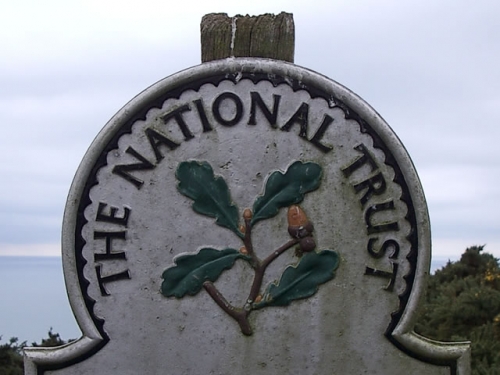 This research project conducted during 2011 is part of a portfolio of research conducted for the National Trust, the UK’s major conservation charity. The organisation is committed to the aims of widening the appeal of the properties and countryside under its management, as well as providing meaning and inspiration as part of this broad appeal. The measurement of enjoyment, linked to meaning and inspiration is therefore a critical measure in the success criteria of individual properties and the organisation as a whole.
This research project conducted during 2011 is part of a portfolio of research conducted for the National Trust, the UK’s major conservation charity. The organisation is committed to the aims of widening the appeal of the properties and countryside under its management, as well as providing meaning and inspiration as part of this broad appeal. The measurement of enjoyment, linked to meaning and inspiration is therefore a critical measure in the success criteria of individual properties and the organisation as a whole.
 BU is participating in the EU funded
BU is participating in the EU funded  Last week I was sitting on the train, on route to a rather dull meeting in London, and wading through a brief case full of glossy reports and papers that had been accumulating in the in tray for several weeks. Not the sort of reading that usually has the pulse racing or the pages turning. I could at this point make reference to the latest Charles Cumming spy thriller but I will refrain and finish this piece so I can catch a few pages later. Any way in the stack of reading was a report published earlier in the year by the Research Information Network on the
Last week I was sitting on the train, on route to a rather dull meeting in London, and wading through a brief case full of glossy reports and papers that had been accumulating in the in tray for several weeks. Not the sort of reading that usually has the pulse racing or the pages turning. I could at this point make reference to the latest Charles Cumming spy thriller but I will refrain and finish this piece so I can catch a few pages later. Any way in the stack of reading was a report published earlier in the year by the Research Information Network on the  As I think I have reported before I have fond memories of the basement stacks of Queen Mary where as an undergraduate I used to spend my days lost in the shelves of geology journals. A few years later I can still remember how as a new academic one would wait for the post every day and the return from review of a cherished manuscripts and the all-important editor’s letter with the verdict; all now things of the past with electronic submission and on-line publishing. The journal names remain the same but I can’t remember the last time I actually set foot in the library in search of a paper yet my weekly reading list grows longer constantly as electronic alerts draw my attention to the productivity of my colleagues. However nostalgic I may feel about paper copy it is a thing of the past as almost all journals these days are provided as e-journals.
As I think I have reported before I have fond memories of the basement stacks of Queen Mary where as an undergraduate I used to spend my days lost in the shelves of geology journals. A few years later I can still remember how as a new academic one would wait for the post every day and the return from review of a cherished manuscripts and the all-important editor’s letter with the verdict; all now things of the past with electronic submission and on-line publishing. The journal names remain the same but I can’t remember the last time I actually set foot in the library in search of a paper yet my weekly reading list grows longer constantly as electronic alerts draw my attention to the productivity of my colleagues. However nostalgic I may feel about paper copy it is a thing of the past as almost all journals these days are provided as e-journals.
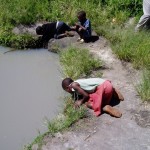 The eTourism Lab,
The eTourism Lab, 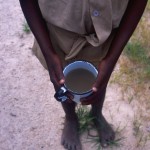 While there is agreement that charities nowadays have a greater need for marketing, there is little agreement on how they should be approaching marketing and especially when it comes to the adoption of Social Media; research has shown that they are lagging behind as they are waiting to see how others use this new technology. Today, charities of any size can take advantage of Social Media tools to showcase their organisation to the world without relying on huge budgets. Money is no longer the decision factor, creativity is. Getting a head start and expanding your Instagram presence buy choosing to
While there is agreement that charities nowadays have a greater need for marketing, there is little agreement on how they should be approaching marketing and especially when it comes to the adoption of Social Media; research has shown that they are lagging behind as they are waiting to see how others use this new technology. Today, charities of any size can take advantage of Social Media tools to showcase their organisation to the world without relying on huge budgets. Money is no longer the decision factor, creativity is. Getting a head start and expanding your Instagram presence buy choosing to  Little research has actually been carried out on marketing from a non-profitable organisation’s point of view. Bournemouth University is experimenting with Internet and Social Media to try and classify a best practice for charities to help them engage and create awareness about the problem and how people can help make a change. Facebook and Twitter are primarily used to raise awareness and create story telling. As relationships are the foundation for Social Media sites they are key for charities in order to engage further with their stakeholders. So far our attempts have been successful and we have found that followers are engaging with us through Social Media and we are now looking into ways of raising money through the various platforms to help fund new projects around the world. Using social media strategically will be critical for organisations of the future and the expertise of the eTourism Lab will be widely used for all organisations engaging.
Little research has actually been carried out on marketing from a non-profitable organisation’s point of view. Bournemouth University is experimenting with Internet and Social Media to try and classify a best practice for charities to help them engage and create awareness about the problem and how people can help make a change. Facebook and Twitter are primarily used to raise awareness and create story telling. As relationships are the foundation for Social Media sites they are key for charities in order to engage further with their stakeholders. So far our attempts have been successful and we have found that followers are engaging with us through Social Media and we are now looking into ways of raising money through the various platforms to help fund new projects around the world. Using social media strategically will be critical for organisations of the future and the expertise of the eTourism Lab will be widely used for all organisations engaging. On Friday last week the RDU organised two bidding workshops with John Wakeford of the Missenden Centre.
On Friday last week the RDU organised two bidding workshops with John Wakeford of the Missenden Centre.
 Although a major contributor to life at BU, the study of Tourism is often wrongly maligned as being a niche subject on the periphery of more established areas of study such as Business & Management and Geography. Well, in the UK alone over 100 institutions offer HE courses at undergraduate level including “top tier” universities such as Exeter, Surrey, Strathclyde and Stirling with many more competing for students and staff across Europe and beyond with major concentrations of activity in North America, the Middle East, South East Asia and Australia and New Zealand where tourism is not only a significant area of academic interest but also of valuable income, foreign exchange earnings and employment.
Although a major contributor to life at BU, the study of Tourism is often wrongly maligned as being a niche subject on the periphery of more established areas of study such as Business & Management and Geography. Well, in the UK alone over 100 institutions offer HE courses at undergraduate level including “top tier” universities such as Exeter, Surrey, Strathclyde and Stirling with many more competing for students and staff across Europe and beyond with major concentrations of activity in North America, the Middle East, South East Asia and Australia and New Zealand where tourism is not only a significant area of academic interest but also of valuable income, foreign exchange earnings and employment. Tomorrow, Tuesday 27th September 2011, is World Tourism Day and to celebrate this week on the research blog is Tourism Week. Every day the research blog will be highlighting stories about the excellent work going on in Bournemouth University’s
Tomorrow, Tuesday 27th September 2011, is World Tourism Day and to celebrate this week on the research blog is Tourism Week. Every day the research blog will be highlighting stories about the excellent work going on in Bournemouth University’s 












 BU PhD student attending HIV conference on scholarship
BU PhD student attending HIV conference on scholarship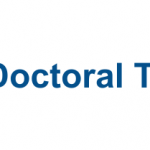 ESRC SWDTP – Applications open for PhD Studentships for September 2026
ESRC SWDTP – Applications open for PhD Studentships for September 2026 New paper by CMWH PhD student
New paper by CMWH PhD student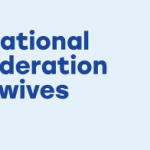 Further CMWH contributions to 2026 ICM congress
Further CMWH contributions to 2026 ICM congress ECR Funding Open Call: Research Culture & Community Grant – Apply Now
ECR Funding Open Call: Research Culture & Community Grant – Apply Now MSCA Postdoctoral Fellowships 2025 Call
MSCA Postdoctoral Fellowships 2025 Call ERC Advanced Grant 2025 Webinar
ERC Advanced Grant 2025 Webinar Horizon Europe Work Programme 2025 Published
Horizon Europe Work Programme 2025 Published Horizon Europe 2025 Work Programme pre-Published
Horizon Europe 2025 Work Programme pre-Published Update on UKRO services
Update on UKRO services European research project exploring use of ‘virtual twins’ to better manage metabolic associated fatty liver disease
European research project exploring use of ‘virtual twins’ to better manage metabolic associated fatty liver disease